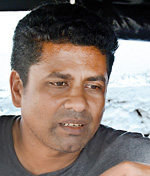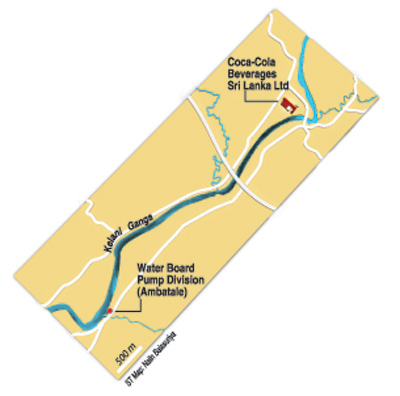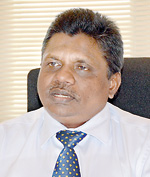News
Coca Cola could face compensation call over claimed leak
View(s):When she woke up on Monday morning, 36-year-old Tharanga Nisansala had only one thing on her mind: her vote. But the day of the much-anticipated general elections unravelled as she found the home drinking water line contaminated and smelling foul.
“I woke up early, before my family did, to prepare breakfast so that we could go and vote,” said Ms. Nisansala, a mother of three living down Anderson Road in Kalubowila. When she went to her kitchen and filled a basin of water there was oil floating on it, smelling like kerosene.
![ambatale[1]](http://www.sundaytimes.lk/150823/uploads/ambatale1.jpg)
Water treatment plant in Ambatale
After hearing from officials at the water treatment plant in Ambatale that there was something amiss and that water being piped into Colombo was mixed with oil the water board decided to announce a water cut at 6.30 a.m. to allow investigation.
The Board, the Central Environment Authority (CEA) and the Marine Environment Protection Authority (MEPA) joined forces to flush away water from the area; floaters were used to sponge the oil out of the river.
Before restoring water supply officials carried out a grease content evaluation that showed grease at 0.2 mg per litre, the maximum acceptable level for drinking water. CEA Chairman Prof. Lal Dharmasiri said production at Coca Cola Beverages at Biyagama was suspended pending further investigations and pointed out that the provisions of the Environment Protection Licence granted to the company forbade the disposal of waste in the Kelani River.

Nishantha Dinesh Perera
 On Monday evening the water board was able to recommence water supply to residents but not successfully.“For two days the water was oily and smelled bad. We had to buy drinking water because we were scared to give the other water to our children,” said 39-year-old Nishantha Dinesh Perera, a father of two, also from Kalubowila.
On Monday evening the water board was able to recommence water supply to residents but not successfully.“For two days the water was oily and smelled bad. We had to buy drinking water because we were scared to give the other water to our children,” said 39-year-old Nishantha Dinesh Perera, a father of two, also from Kalubowila.
The Water Board has two intakes from the Kelani River, one at Biyagama, where 180,000 cubic metres of water is generated daily by an automated treatment plant and distributed to North Colombo, Ja-Ela and Kelaniya. From the second plant, at Ambatale, 500,000 cubic metres of water a day goes to the Dehiwela, Kaduwela, Maharagama, Maligakanda and Kolonnawa areas. The board received more than 200 complaints over the contamination coming through the Ambatale plant.
Water Board Chairman Kuddoos Alahudeen Ansar remembers Monday to be one of the busiest days in his life. Regardless of it being election day officers had to be deployed to resolve the matter as soon as possible.“We have now sent samples to India to test for substances that was present in the water. These tests cannot be done in Sri Lanka. Till the results come we can’t confirm what was mixed with the water that day,” Mr. Ansar said.

Water board Chairman Kuddoos Alahudeen Ansar
The Board’s Deputy General Manager, Western Production, Ranjith Perera, who is based at the Ambatale plant, said that despite the beverage company claiming that there had been a leak in one of its oil tanks his officers had not been able to find anything that would support this explanation.
“Officers from the WSDB, CEA and the police went to the company to check and were not able to find the source of the leak. Even if there was a leakage it is not acceptable,” Mr. Perera said, adding that the company was CEA-approved and thus should have precautionary measures planned in case of such a leak.
CEA Chairman Prof. Dharmasiri said the swift action taken to stop the oil from wholesale contamination of the water supply had cost the government more than anticipated. Apart from stopping water distribution, employing people and using resources to lift off the oil from the river the CEA also had to release water from the Laxapana reservoir to flush out the impure water.
“These are high expenses. We are going to evaluate the expenses the government bore following the incident and ask the company involved to compensate,” Prof. Dharmasiri said.
Compensation of costs and prevention of future crises were discussed at a special meeting called by the CEAon Friday, attended by the water board, MEPA, the Disaster Management Centre, police, provincial council heads and officials of Coca Cola.
The CEA Chairman urged the public to inform authorities about any similar incidents so that prompt action could be taken.
Coca Cola Beverages Sri Lanka Ltd issued a statement in which the company stood by its original claim.
“On 17th August early morning, our staff noticed a leakage of diesel oil from a fuel pipe line. The leak was plugged immediately by the staff on night duty. However, by the time this leak was plugged, some oil had escaped into the nearby water body through the storm water drainage system.
“We informed the local authorities as soon as we noticed it and took additional precautionary measures in consultation with them. Further, we initiated exhaustive preventive actions to avoid any such occurrence in future. We regret the inconvenience caused and are co-operating with the authorities,” it stated.
This is not the first time a Coca Cola company has been linked to water pollution. In the city of Varanasi in Uttar Pradesh, India last year authorities took steps to close down a Coca Cola bottling plant for contaminating ground water with toxic effluent.
Juggling jobs and pure water along Kelani
The dilemma of keeping the valuable belt of industry along the Kelani River while protecting the river is being studied by the International Union for Conservation of Nature (IUCN). The organisation’s country representative, Dr. Ananda Mallawatantri said the project commenced two months ago and the ICUN is working on issues such as management of industrial effluent discharge, non-point source pollution, conservation of the river bank, ground water and effluent discharge by government institutions.
“There are new ideas that come about from this. One is to put up a tube alongside the Kelani River from Ambatale, where most of the factories are situated, so that all waste water will be transported by this pipe, instead of releasing them to the river,” Dr. Mallawatantri said. The water would be treated in this contained method.
He explained that there are about 6,000 industries located along the Kelani River and they generate employment, so closing them down was not a solution. Rather, a sustainable mechanism should be instituted to stop pollution.
Dr. Mallawatantri said the IUCN studied rivers in other countries and evaluated the methods taken by governments to conserve rivers.“Protecting rivers from which many drink water is a social responsibility. All companies should understand this,” he said.

